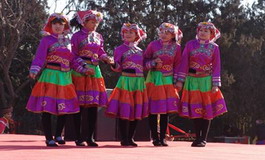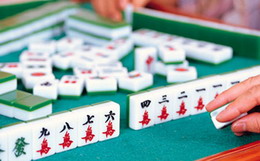
A personal story about Chinese culture
Based on the fluidity and efficacies of kung fu, I started to take critical lessons in kung fu in the late nineties as a self defense mechanism against any untoward attackers or intruders as the security situation in Nigeria faltered. Not only is kung fu now incorporated into the martial art courses in local training classes, it has also been incorporated as a rigorous self survival techniques taught in the Nigerian military and paramilitary services. I later came to know that kung fu was not just a Chinese martial art form that is said to have originated from the first Shaolin temple where monks were taught to develop their self defense skills through rigorous styles; it is a spiritual exercise that ingrains respect, patience, humility and morality in its practitioners.
In the early 2003, I had started to enjoy Chinese delicacies which at the time were beginning to occupy prominent spots in the menu of high-flying restaurants and hotels in my country. The phenomenal importance of Chinese cuisines actually started in the late nineties and today, without any fear of contradiction, I can confidently say that Chinese cuisines are the most popular intercontinental menus offered in the Nigerian hospitality industry. Restaurants such as the Planet One Hospitality (Ikeja), Real Taste Chinese Cuisine (Ikeja), Georges Chinese Cuisine (Ikoyi, Lekki Phase 1 ), Jade Place (Victoria Island), Pearl Garden Chinese Restaurants, Barou di 007 Bar (Victoria Island), etc, now serve what they brand authentic varieties of Chinese cuisines - well known for their rich nutritional content and value.
In my quest to relish the rich tasty goodness of authentic Chinese cuisines, I have patronized the Golden Gate Restaurants (Ikoyi) and the Oriental Hotels (Victoria Island annex) where they have Chinese chefs with great cooking skills and traditional expertise prepare the delicacies. I had experienced the sumptuous taste of seafood (twin lobsters, butterfly king prawns and crabs), scallop and mushrooms yee mien in brown beans sauce, and all, which becomes more appetizing with the additional fresh and spicy chili sauce. Through my interaction with Chinese chefs, I got to know that cooking, to them, was not just a mere activity but an art in itself that satiates the pleasured delight of the senses.
Soon I started to know the differences between in the various cooking styles in China. For example, the Mandarin (or Pekin) cooking style is characterized by light, wonderful taste and plenteous use of garlic and scallions; that of the Szechwan are hot and spicy, highly seasoned with Szechwan pepper; while the Cantonese mainly use light seasoning to extract the original taste of the ingredients, light soy sauce, ginger and wine are also commonly added. . Chinese traditional medicine is another aspect that has had a transformational impact on me. I have seen quite a number of Chinese doctors practicing in Nigeria use acupuncture for diagnosis and prognosis of a number of ailments such as in treating neurological disorders and for stroke rehabilitation.
Acupuncture, as a traditional medical practice of the Orient, I soon got to know entailed the technique or stream of techniques that involved the penetration of the skin with needles which will then be manipulated either manually or through electronic stimulation. A Chinese doctor whom I encountered at the General Hospital in Lagos had informed me that acupuncture was among the oldest healing practices in the world, and that by stimulating predetermined acupunctural points, imbalances in the flow of gi can be corrected through channels known as meridians qi.
In the present practice as I was once opportune to witness in one consultation session, the Chinese doctor would first take the pulse on both arms of the patients and then proceed to inspect the tongue. The patient's skin will then be sterilized with a sterilizing agent before the needles are pierced under the guidance of a plastic tube. According to Professor Joseph Sodipo (who undoubtedly was the first Nigerian doctor to study Acupuncture in South China and who later operated the first acupuncture clinic at the Lagos University Teaching Hospital (LUTH), "the overall success rate of acupuncture was 71.4 percent which correlates with previous investigations''. He said further that, "The advantages of acupuncture are prolonged postoperative analgesia, early ambulation, absence of abdominal distention and a lack of postoperative cardiovascular and respiratory complications."
 |
 |


